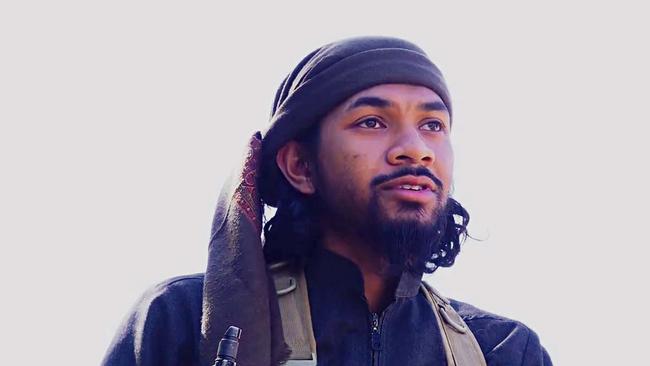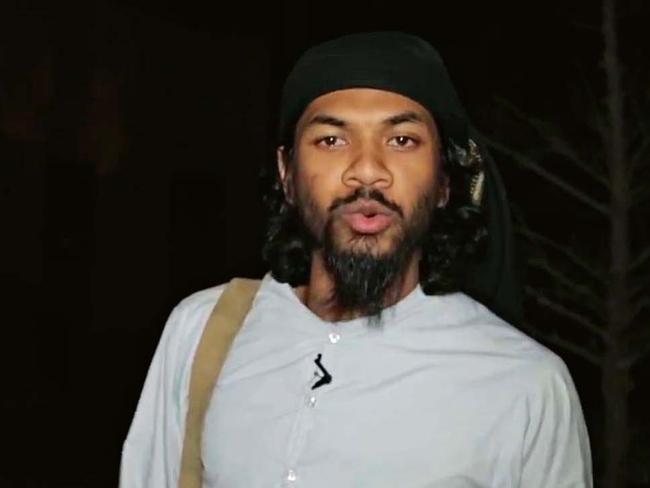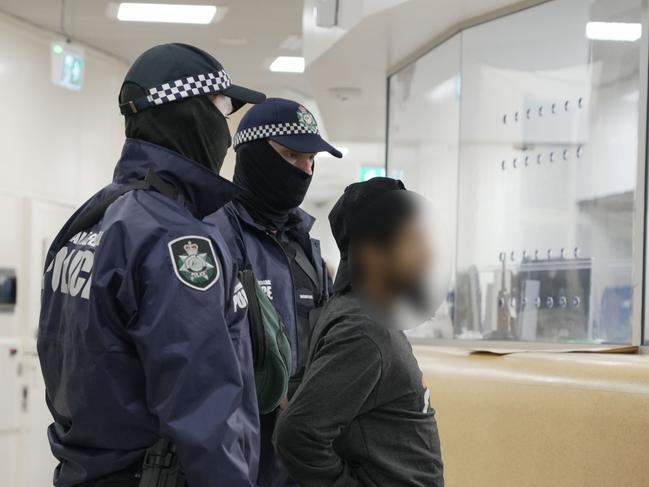Accused former Islamic State terrorist Neil Christopher Prakash excused from court due to health
Accused former Islamic State terrorist Neil Prakash was excused from a court hearing after appearing to be distressed while on a video link from a Melbourne jail.

Police & Courts
Don't miss out on the headlines from Police & Courts. Followed categories will be added to My News.
Accused former Islamic State terrorist Neil Christopher Prakash declared “I’m going to faint” before being excused from court where he is facing charges that could see him jailed for life.
Prakash, extradited from Turkey in December 2022, is facing six terrorism offences including engaging in hostile activity in a foreign state, being a member of a terrorist organisation and entering or remaining in a declared area.
Prior to his capture, Prakash was the nation’s most wanted alleged terrorists, accused of attempting to commission terrorist acts, including in Australia, and recruiting people to travel to Syria and Iraq to join ISIS.
The 33-year-old was briefly beamed into the Melbourne Magistrates’ Court on Monday via a video link from the Melbourne Assessment Prison where he appeared in a state of distress.

The court proceeding was paused, with Prakash telling his lawyers he was going to faint.
The alleged terrorist was excused from the committal proceeding following an explanation by his lawyer about an undiagnosed medical condition.
“It’s not necessary to have a precise diagnosis. The simple fact of the matter is Mr Prakash does not feel able to continue and seeks to be excused,” his lawyer said.
Witnesses including former associates and a prominent ex-journalist were called to give evidence.
Joseph Almatrah told the court he knew Prakash as “Little Chris” and took him to the now-defunct Al Furqan Islamic centre in Springvale South to be converted to Islam in 2012.
Al Furqan is linked to several radical extremists including some who have died fighting in the Middle East.
Mr Almatrah told the court that day’s sermon, by radical “sheikh” Harun Mehicevic, left him disturbed but appeared to “entice” Prakash, previously a Buddhist with no knowledge of Islam.
Ibrahim Halligan, a childhood friend of Prakash, also witnessed his religious conversion.
He told the court he warned Prakash against the men of the Al Furqan.
“I told him those people are no good and he agreed with me but kept communicating with them,” Mr Halligan told the court.

“They were constantly in contact, inviting him places and forcing him to come out.”
A year after his conversion, Prakash travelled to the Middle East where police allege he “intentionally engaged in hostile activities” – a crime that carries a maximum penalty of life behind bars.
Paul Maley, former national security and defence editor for The Australian, gave evidence about Prakash’s alleged efforts to “crowdsource” his murder.
Mr Maley wrote extensively about Prakash during the height of his notoriety, resulting in online threats.
The pair communicated over apps Kik, Wickr and Twitter, with Mr Maley later contacted by the Victorian Police Counter Terrorism squad with concerns of his security.
The lawyer for Prakash asked Mr Maley what steps he took to ensure he wasn’t being used by authorities as an “agent provocateur”.
“I never had any grounds for believing I was put in that position or used in the purpose,” Mr Maley told the court.
The committal, before Magistrate Rohan Lawrence, continues.



